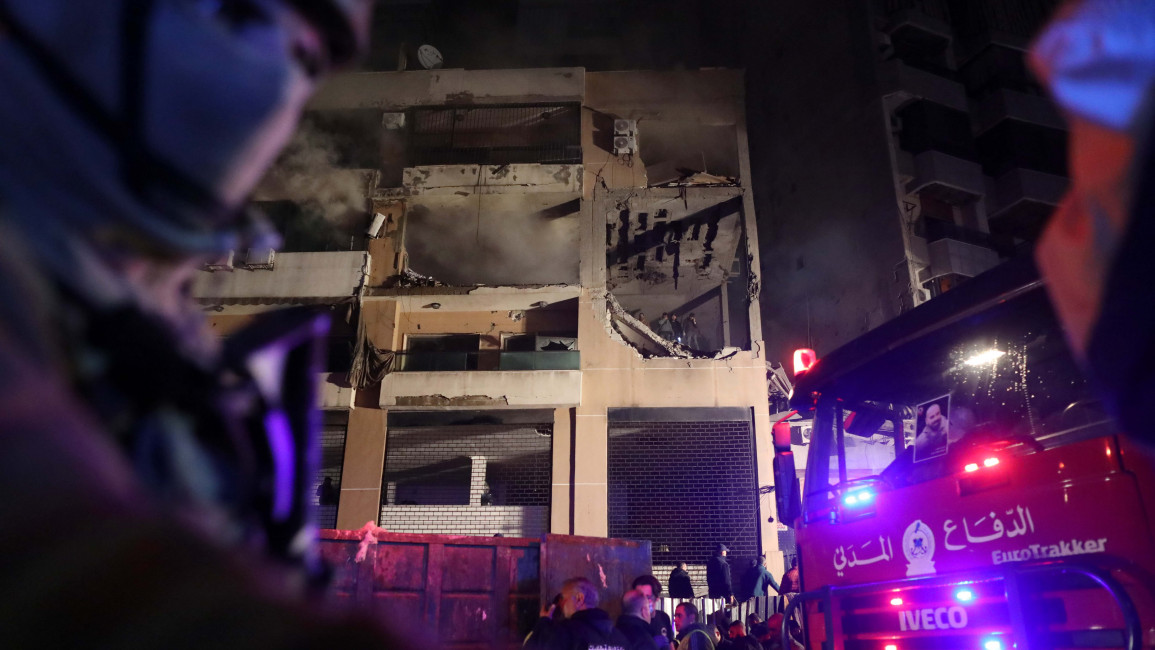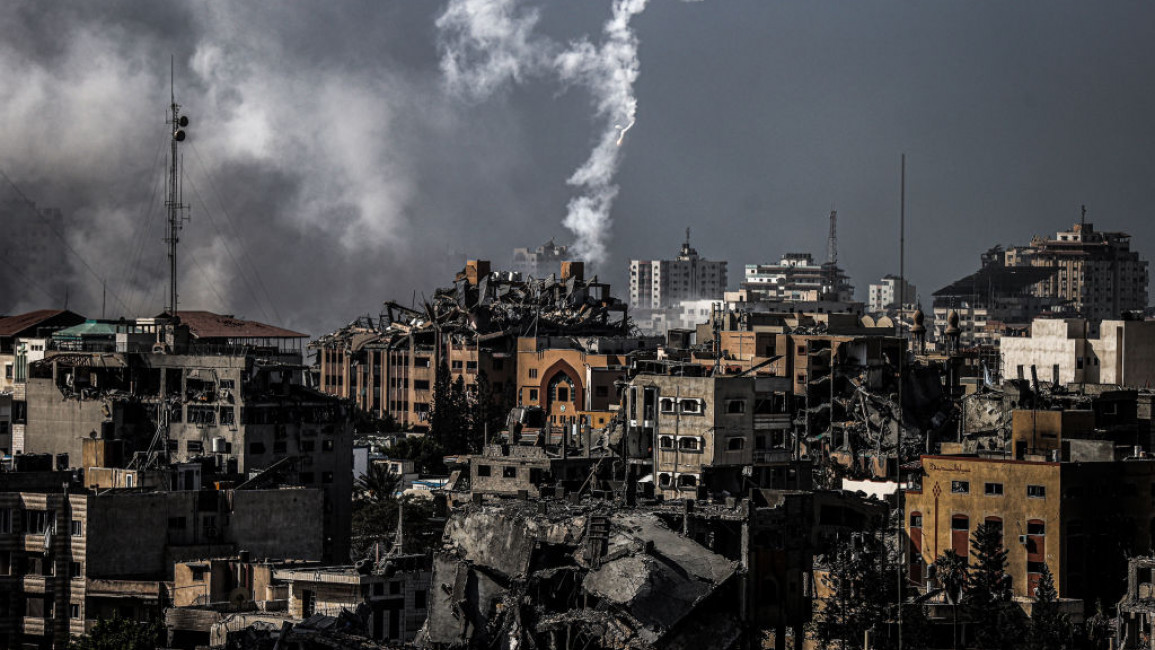
The killing of Saleh al-Arouri: What to expect next from Hezbollah and Israel

On 2 January, Saleh al-Arouri, a senior Hamas official serving as the deputy chief of its political bureau and one of the founders of the group’s military wing, the Al-Qassam Brigades, was assassinated in a drone strike in a Hezbollah stronghold, Dahiyeh, in the southern suburbs of Beirut, Lebanon. The strike reportedly killed six other members of Hamas.
Although Tel Aviv did not officially take credit for the operation, it was widely believed that Israel executed it. Hamas labelled the assassination as a "cowardly" act by Israel and a failure to achieve their goals in the Gaza Strip. Hezbollah condemned the attack as a serious assault on Lebanon, indicating repercussions. Iran condemned the violation of Lebanon's sovereignty and territorial integrity.
The operation suggests a bold yet calculated move by Israel’s Prime Minister Benjamin Netanyahu, who currently lives in increasing political isolation. Netanyahu has so far failed to achieve the primary goals of his army’s unprecedented military operations in Gaza.
"The assassination of al-Arouri demonstrates Israel's willingness to expand its operational reach beyond Gaza"
So far, the Israeli army has destroyed over 70 percent of all homes in Gaza and killed over 23,000 Palestinians, more than two-thirds of them children and women. Not only has the operation failed to release any more hostages, but it has also ended up killing some of them during indiscriminate Israeli bombings. Furthermore, the Israeli military has failed to kill any senior Hamas leaders in Gaza, let alone to destroy Hamas.
Just before the assassination, Hamas reportedly delivered its position on ceasefire negotiations to Qatar and Egypt, which revolved around three main demands. First, a complete cessation of Israel’s aggression in Gaza. Second, increasing aid and responding to the group’s rightful demands. Third, that hostages will not be released except under the group's conditions.
Feeling the increasing pressure and the necessity to achieve something, Netanyahu likely believed he needed to score some points and create the image of a false victory.
The assassination of al-Arouri demonstrates Israel's willingness to expand its operational reach beyond Gaza, targeting Hamas leaders even in areas perceived as safe havens under Hezbollah's control. The assertion that Netanyahu has a personal interest in expanding the war, including to Lebanon, aligns with the view that such actions could serve his political interests and political end goals.
In December, the WSJ reported that Prime Minister Benjamin Netanyahu had ordered Israel’s spy agencies to draw up plans to assassinate Hamas’ top leaders outside of Gaza, who live in Turkey, Qatar, Lebanon, and elsewhere.
In response, Turkey swiftly delivered its warnings to Israeli counterparts. “Such an act would have serious consequences,” a Turkish intelligence official said. The Turkish authorities acted accordingly and announced in the New Year that intelligence and security agencies had successfully uncovered an Israeli spy ring and arrested 33 individuals in eight provinces across the country. This came hours before the assassination of al-Arouri in Lebanon.
|
|
While the assassination might tempt Israel to act elsewhere with full impunity, any attempt to assassinate Hamas leaders in Qatar would not only raise the ire of the Gulf nation but, most importantly, would trigger a diplomatic and political crisis with the US too, which works in close coordination with Doha on the Gaza crisis. Any assassination attempt would have serious ramifications for the fate of Israeli hostages and the future of negotiations with Hamas.
Amid this extremely tense situation, several observers and Hezbollah experts have claimed that Hezbollah will respond to the assassination of al-Arouri as it is compelled to defend its previously established redlines.
In August 2023, Hezbollah’s leader Hasan Nasrallah drew a redline against Israel claiming that it will not allow Tel Aviv to assassinate any foreign members on Lebanon’s soil, including Palestinians. Not only has Hezbollah failed to defend this redline but it has also failed to protect areas under its control from major security breaches.
"The lack of a serious response from Iran and Hezbollah to recent assassinations points towards a complex interplay of actions and reactions in the region"
While al-Arouri’s killing suggests, at least on the theoretical level, that Hezbollah must respond with a similar escalation against Israel and thus risk being caught in a direct confrontation with Tel Aviv, historic experience, the nature of relations between Hezbollah and Iran, and the rational calculations of the involved parties, inform us otherwise.
In countless cases, including those in which senior Hezbollah and Iran commanders were assassinated, no retaliation ever came. This lack of response is often buried under the guise of ‘strategic patience’ in which Hezbollah or Iran threaten to take revenge but never follow up.
In February 2008, for example, Imad Mughniyeh, the Hezbollah equivalent of Iran’s Qasem Soleimani, was assassinated in Syria. Nasrallah vowed to take revenge and enter an open war with Israel, yet this never materialised, and Hezbollah and Israel kept their gentlemen’s agreement of no confrontation - which enabled Hezbollah to later throw its weight behind the Assad regime following the 2011 revolutions to prevent his fall, until the eruption of Israel’s war on Gaza in October 2023.
During all those years, several commanders of both Hezbollah and Iran were assassinated, including the head of the IRGC, Qasem Soleimani, with no major response.
Following Hamas’ October attack and Israel’s war on Gaza, many experts and observers predicted that Hezbollah and Iran would join forces with Hamas in a direct confrontation against Israel. However, the long-awaited Iran/Hezbollah intervention never materialised because Iran and its allies had no real interest in engaging in a serious or direct conflict with Israel, except for calculated moves meant to whitewash their image following their role in Syria and Iraq during the last decade or so.
The survival of the Iranian regime determines whether there will be serious or direct confrontation with Israel. Despite the relative freedom of movement enjoyed by Iran's proxies solely for tactical and operational reasons, Iran has the primary decision in guiding their strategic decisions and actions, including those of Hezbollah, to align with its strategic interests.
|
|
This involves avoiding actions that could lead to a large-scale regional war, which would be harmful to Iran's strategic interests. In this sense, any presumed direct confrontation between Hezbollah and Israel would be on Iran’s watch, according to Iran' terms, and for reasons that serve Iranian strategic objectives rather than Palestinian or Hamas ones.
The subtlety of Israel's messaging through this assassination is also evident. By striking a Hamas leader within Hezbollah's sphere but not directly targeting Hezbollah, Israel demonstrated its capability and set a threshold for escalation. This tactic seems to bank on Hezbollah's rationality, calculating that a direct response could escalate into further Israeli actions against Hezbollah itself.
However, the risk of miscalculation in such high-stakes situations remains. In the past, both Hezbollah (2006) and Iran (2019) miscalculated. Israel's assumption of rational behaviour from Hezbollah and Iran could lead Israel to miscalculate, which would result in unintended escalations.
The recent timeline of events, including the assassination of a senior IRGC commander in Syria, the assassination of Saleh al-Arouri in Lebanon, the Kerman bombing, and the lack of a serious response from Iran and Hezbollah, points towards a complex interplay of actions and reactions in the region. These events, coupled with changes in military postures, suggest a dynamic and fluid situation.
"Recent steps indicate a potential shift towards a different conflict phase, focusing more on strategic positioning and asymmetrical warfare, including targeted assassinations"
Despite these aggressive actions, there are some signs of de-escalation. Last week, Hezbollah reportedly withdrew some forces from the Israeli border. The US also announced that it would withdraw its Gerald R. Ford aircraft carrier, the largest in the world, from Israel's shores. Simultaneously, Israel said it would pull out thousands of troops from Gaza.
If materialised, these steps indicate a potential shift towards a different conflict phase, focusing more on strategic positioning and asymmetrical warfare, including targeted assassinations. The assassination of Saleh al-Arouri thus highlights the intricate balance of power, strategic calculations, and the ever-present risk of miscalculation.
It also underscores the complex interplay of regional politics, where actions are influenced more by broader strategic objectives than by immediate retaliatory impulses.
Ali Bakir is an Assistant Professor at Qatar University's Ibn Khaldon Center and a nonresident Senior Fellow with the Scowcroft Middle East Security Initiative at the Washington-based Atlantic Council.
Follow him on Twitter @alibakeer



![President Pezeshkian has denounced Israel's attacks on Lebanon [Getty]](/sites/default/files/styles/image_684x385/public/2173482924.jpeg?h=a5f2f23a&itok=q3evVtko)



 Follow the Middle East's top stories in English at The New Arab on Google News
Follow the Middle East's top stories in English at The New Arab on Google News


